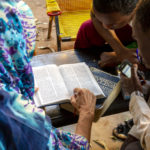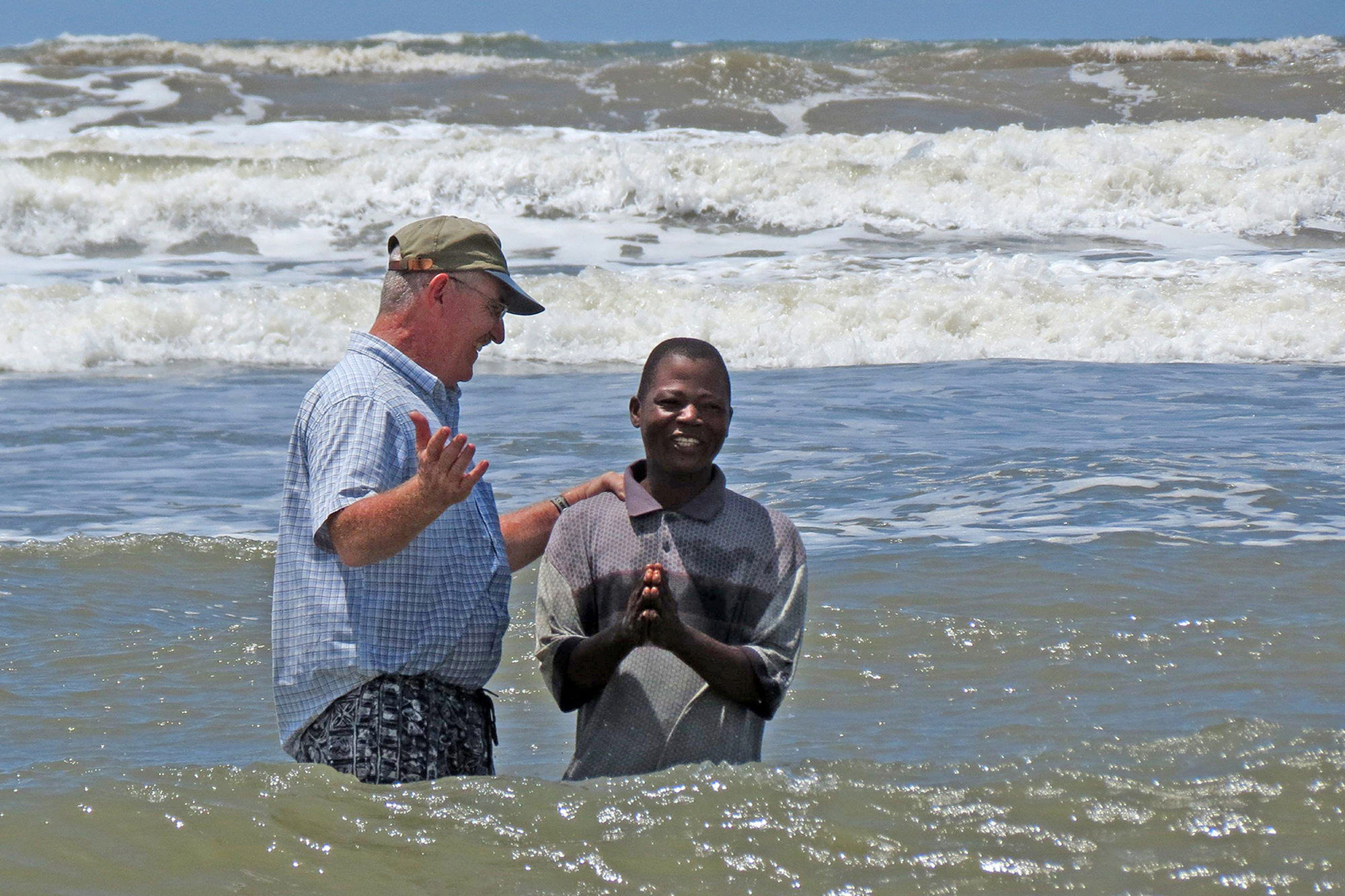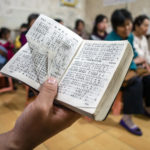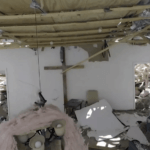
MILAN, Italy — Huddled around electrical outlets in the McDonald’s of this city’s largest railway station, Syrian refugees, many of them young men in their 20s, wait as their phones charge. A short walk away, a line forms as more Syrians wait to register with a local relief organization. Others sit near the station’s entrance, patiently waiting for a van ride to one of the nearby refugee camps.
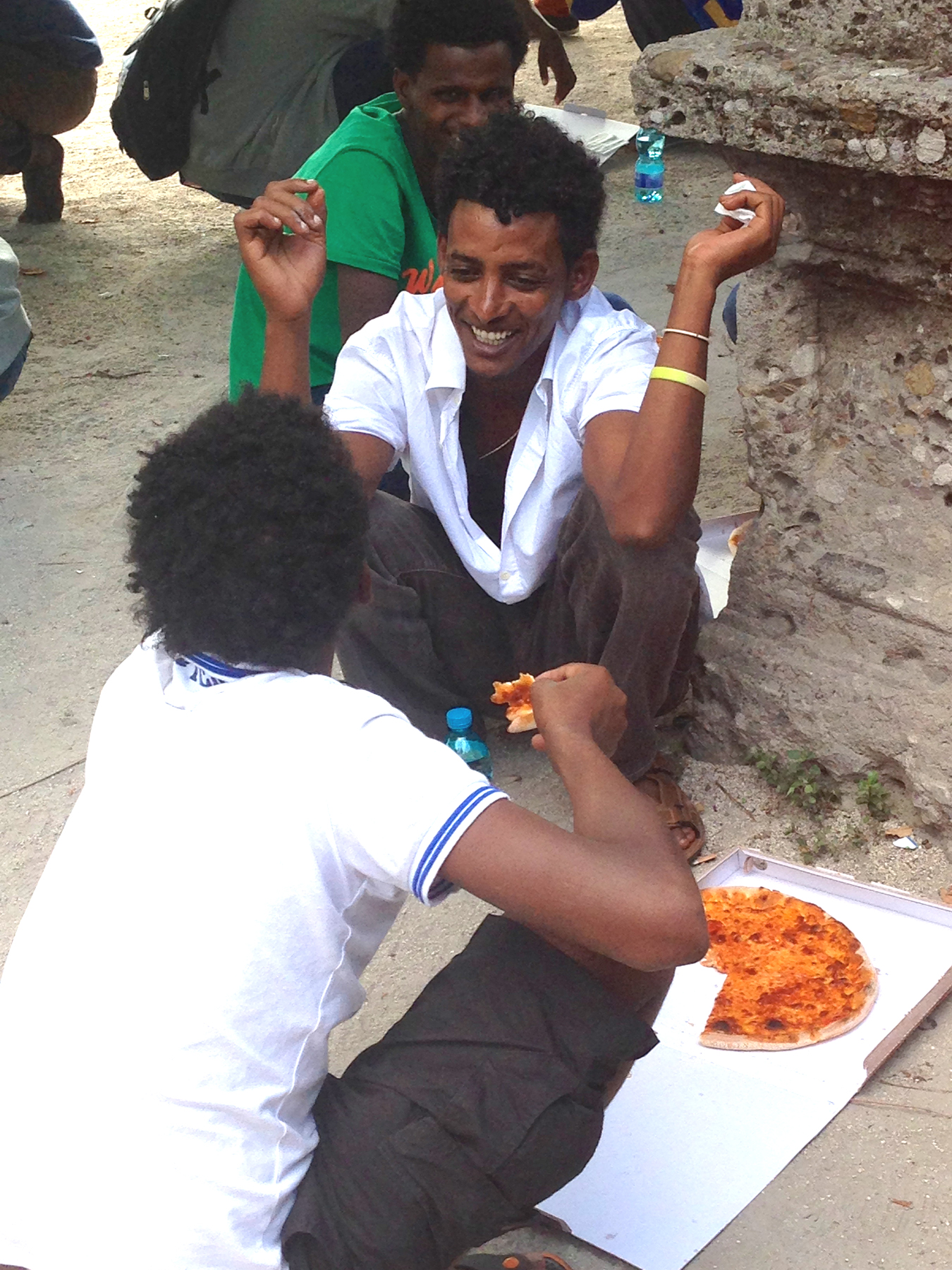 Waiting has become a staple of life for many of these and other refugees in Milan, Italy, since fleeing their war-torn homelands. Most left Syria months ago, joining the rapidly growing stream of immigrants seeking a better life in Europe. United by family, friendship or simply the shared experience of suffering to get here, they remain hopeful and resilient. Yet they wait.
Waiting has become a staple of life for many of these and other refugees in Milan, Italy, since fleeing their war-torn homelands. Most left Syria months ago, joining the rapidly growing stream of immigrants seeking a better life in Europe. United by family, friendship or simply the shared experience of suffering to get here, they remain hopeful and resilient. Yet they wait.
Ahmed, 25, left a job as a crane operator; Mustafa, a 32-year-old Iraqi, left behind something much more precious: a wife and a 4-year-old daughter.
“My mom and his mom were friends,” says Mustafa as he points to Ahmed. “They stayed in a house together, and then …” he makes a bomb gesture with his hand and imitates the sound of destruction. “They died.”
That day was the tipping point for these two friends who had relocated near Damascus years ago. Seeking freedom on the European continent, the pair risked the journey out of Syria. Arriving in Turkey, they each paid $6,000 for a boat ride to Catania, Italy.
“No food. No water. No talking to my friend. No anything,” they recount. In his desperation, Ahmed drank salt water, causing him to become ill. “All people said, ‘Please, my God, come help.'”
After a sunken boat, a successful rescue effort, severe sunburns and dramatic weight loss, the Iraqi friends’ prayers were answered as they finally reached Italy.
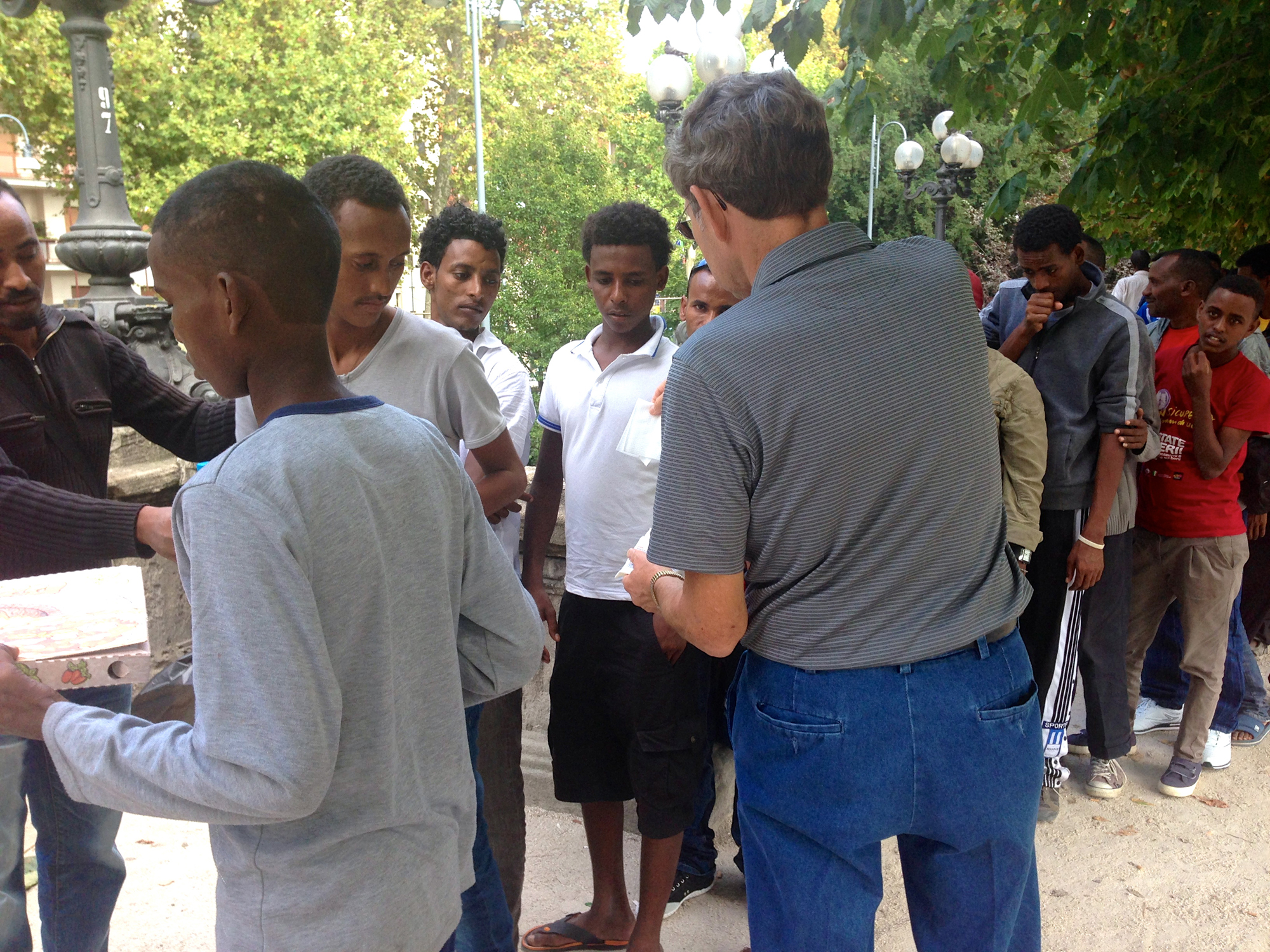 Mustafa’s father lives in Stockholm, Sweden, and they hope to join him there. Their plans, however, remain incomplete.
Mustafa’s father lives in Stockholm, Sweden, and they hope to join him there. Their plans, however, remain incomplete.
“We leave today or tomorrow. After that, we don’t know.”
Less than a mile away, dozens of Eritreans sit in a public park. All of them are waiting.
One man has been here two days now. In a soft, tired voice, he describes the route from his home country to Ethiopia, Sudan and Libya. Like the Syrians, he then boarded a boat bound for Italy. Three days later, the Italian Coast Guard rescued him and 270 others.
He’s 30 years old but appears much older. Nonetheless, he hopes to start a new life in England. “But it’s very difficult to go there,” he says.
Although they receive housing and some food, the refugees spend their days in the park, waiting to leave on the next leg of their journey; waiting for life to somehow improve. Three other men, ages 18, 23 and 28, wait for family members. One has a brother in Sweden, he says. The other two hope to make it to either Germany or Denmark. After spending thousands of dollars to arrive in Europe, they must now wait for more money. When asked how long that wait may be, one simply replies, “Unknown.”
With Italy’s stubborn double-digit unemployment rate, this picturesque and storied country is not the ideal European destination to find work and begin a new life.
Once here, the immigrants develop plans to travel throughout Europe, especially to Germany and Sweden. “No jobs here,” they say, referencing Italy’s stagnant economy.
Nonetheless, the peninsula has proved to be a vital entry point, even if it isn’t the ultimate aim. Committed to rescuing the thousands who come to Italy by sea, the Italian Coast Guard launched Operation Mare Nostrum (Latin for “our sea”). Tens of thousands of immigrants have arrived in Italy in 2014 alone; countless more perished before reaching Italian shores. With rapidly deteriorating political and humanitarian conditions throughout Africa and the Middle East, that steady stream shows no signs of stopping.
For Seth Peyton,* a Christian worker who serves North African and Middle Eastern peoples in Italy, their presence presents a unique and unprecedented opportunity.
After watching an Italian news report about refugees in Italy, he and his team traveled to Milan to see the situation firsthand. In the train station, the sense of desperation is easy to see, he says.
“Nobody wants to stay here in Italy. From what we understand, they’re given eight days here in Milan and they must go before getting fingerprinted. … Once they get fingerprinted, they have to stay here, where they would be given asylum. Most of them don’t want to stay here because there are no jobs, no work and no real future [for them] in this country. This is just a passing through, and Milan is the gateway to northern Europe.”
“My hope is that they would hear the Gospel — at least have the opportunity to hear the Gospel,” says Amy Kelley,* one of Peyton’s colleagues. “Just like people in America have the opportunity to hear the Gospel and then they make a decision, that’s the same thing I want for [the refugees]: to hear the Gospel and then make a decision. But they have to hear it. No man can believe if he hasn’t heard.”
Peyton agrees. “[I] pray that the Holy Spirit would minister to these people and use this experience to open their hearts, open their eyes to the Gospel so that one day we may have many Syrian brothers and sisters worshiping Christ.”
For now, they wait. For another train, another day, a better future. Above all, they’re still waiting for the Gospel.
Pray
— Pray that refugees fleeing deteriorating conditions in Africa and the Middle East will be ministered to physically, emotionally and spiritually.
— Pray for refugees to have open hearts when they hear the Gospel message.
— Pray for believers who work among the refugees to have godly wisdom, patience and compassion.
*Name changed.



